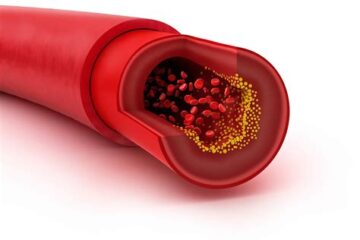
Introduction
Depression is a major cause of the disease burden of mental health disease. Studies in the past have suggested that regular physical exercise can reduce depressive symptoms. In this post at Can exercise reduce depression – יואל קסלר we reprint a new meta-analysis from JAMA Psychiatry that show that even low amounts of regular exercise can help diminish depressive symptoms.
Key points
Question What is the dose-response association between physical activity and incident depression in adults?
Findings This systematic review and meta-analysis of 15 prospective studies including more than 2 million person-years showed an inverse curvilinear association between physical activity and incident depression, with greater differences in risk at lower exposure levels. Adults meeting physical activity recommendations (equivalent to 2.5 h/wk of brisk walking) had lower risk of depression, compared with adults reporting no physical activity.
Meaning In this study, relatively small doses of physical activity were associated with substantially lower risks of depression.Abstract
Importance Depression is the leading cause of mental health–related disease burden and may be reduced by physical activity, but the dose-response relationship between activity and depression is uncertain.
Objective To systematically review and meta-analyze the dose-response association between physical activity and incident depression from published prospective studies of adults.
Data Sources PubMed, SCOPUS, Web of Science, PsycINFO, and the reference lists of systematic reviews retrieved by a systematic search up to December 11, 2020, with no language limits. The date of the search was November 12, 2020.
Study Selection We included prospective cohort studies reporting physical activity at 3 or more exposure levels and risk estimates for depression with 3000 or more adults and 3 years or longer of follow-up.
Data Extraction and Synthesis Data extraction was completed independently by 2 extractors and cross-checked for errors. A 2-stage random-effects dose-response meta-analysis was used to synthesize data. Study-specific associations were estimated using generalized least-squares regression and the pooled association was estimated by combining the study-specific coefficients using restricted maximum likelihood.
Main Outcomes and Measures The outcome of interest was depression, including (1) presence of major depressive disorder indicated by self-report of physician diagnosis, registry data, or diagnostic interviews and (2) elevated depressive symptoms established using validated cutoffs for a depressive screening instrument.
Results Fifteen studies comprising 191 130 participants and 2 110 588 person-years were included. An inverse curvilinear dose-response association between physical activity and depression was observed, with steeper association gradients at lower activity volumes; heterogeneity was large and significant (I2 = 74%; P < .001). Relative to adults not reporting any activity, those accumulating half the recommended volume of physical activity (4.4 marginal metabolic equivalent task hours per week [mMET-h/wk]) had 18% (95% CI, 13%-23%) lower risk of depression. Adults accumulating the recommended volume of 8.8 mMET hours per week had 25% (95% CI, 18%-32%) lower risk with diminishing potential benefits and higher uncertainty observed beyond that exposure level. There were diminishing additional potential benefits and greater uncertainty at higher volumes of physical activity. Based on an estimate of exposure prevalences among included cohorts, if less active adults had achieved the current physical activity recommendations, 11.5% (95% CI, 7.7%-15.4%) of depression cases could have been prevented.
Conclusions and Relevance This systematic review and meta-analysis of associations between physical activity and depression suggests significant mental health benefits from being physically active, even at levels below the public health recommendations. Health practitioners should therefore encourage any increase in physical activity to improve mental health.
דיכאון הוא הגורם העיקרי לנטל המחלה של מחלות בריאות הנפש. מחקרים בעבר העלו שפעילות גופנית סדירה יכולה להפחית את תסמיני הדיכאון. בפוסט זה ב יואל קסלר .קום אנו מדפיסים מחדש מטה-אנליזה חדשה שמראה שאפילו כמויות נמוכות של פעילות גופנית סדירה יכולה לסייע בהפחתת תסמיני דיכאון.


